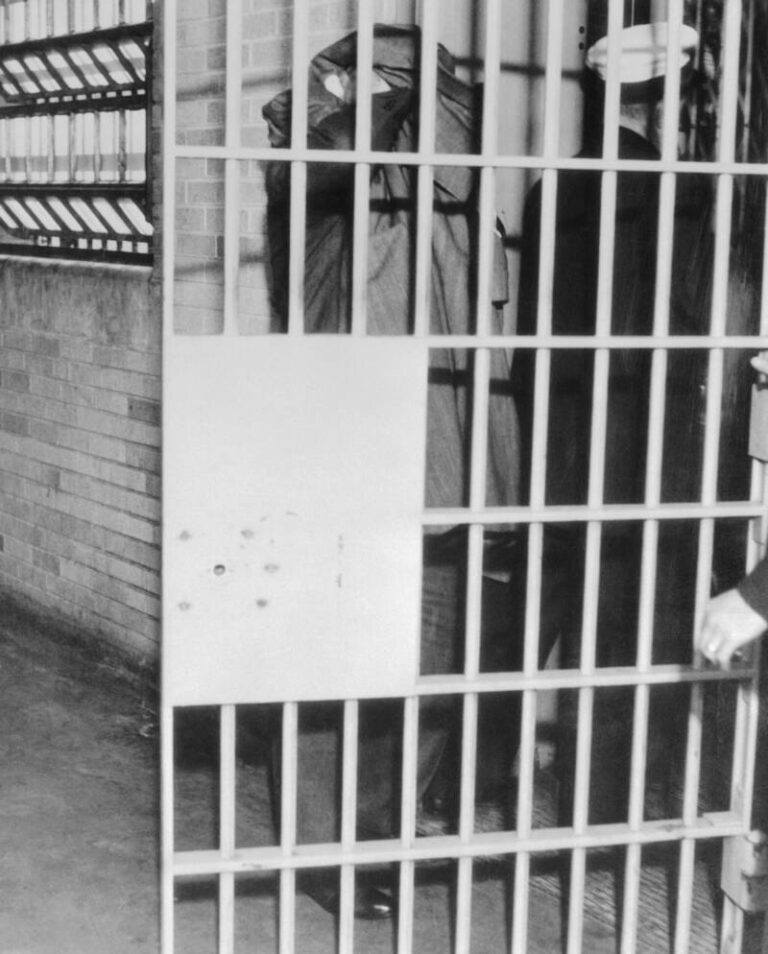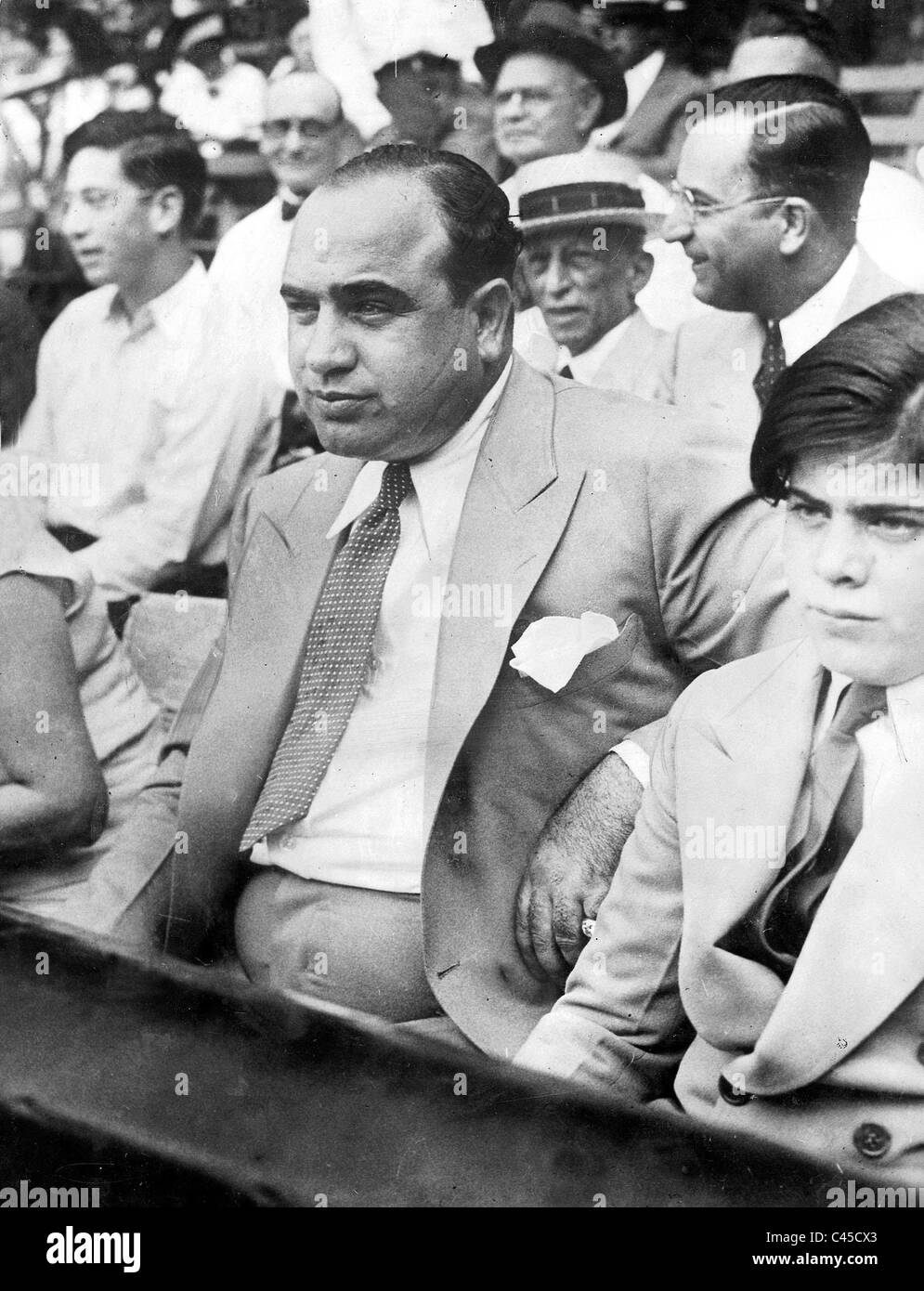Who was Albert Francis "Sonny" Capone, and what secrets did he carry throughout his life? Born into a world of notoriety and shadows, Albert Francis Capone Jr., known as "Sonny," was the sole heir to the infamous Al Capone, a name synonymous with organized crime and the roaring twenties. His life, however, was a complex tapestry woven with threads of inherited affliction, personal transformation, and the enduring weight of a family legacy.
Born on December 4, 1918, in New York City, Albert's life was immediately marked by challenges. He was born with congenital syphilis, a disease that would cast a long shadow over his health and well-being. At the tender age of seven, a serious mastoid infection necessitated risky brain surgery, a procedure he miraculously survived, but which left him partially deaf. These early experiences, coupled with the notoriety of his father, set the stage for a life lived in the shadow of both disease and a criminal empire.
| Albert Francis Capone Jr. - Biography | |
|---|---|
| Full Name: | Alphonse Albert Francis Capone Jr. (later Albert Francis Brown) |
| Date of Birth: | December 4, 1918 |
| Place of Birth: | New York City, New York |
| Parents: | Al Capone & Mary Josephine Coughlin (some sources indicate a different biological mother) |
| Health Issues: | Congenital Syphilis, Mastoid Infection (requiring brain surgery) |
| Name Change: | Albert Francis Brown (1966) |
| Marriage: | Diana Casey |
| Children: | Four daughters: Veronica, Teresa, Barbara, Patricia |
| Death: | July 2004 |
| Place of Death: | Auburn Lake Trails, California |
| Burial Place: | California |
| Known For: | Son of Al Capone, distancing himself from his father's legacy. |
| Reference: | Find a Grave |
His decision to distance himself was not merely a whim but a deliberate attempt to escape the perpetual shadow of his father's infamy. In 1966, he legally changed his name to Albert Francis Brown, a symbolic severing of ties to the Capone name and all it represented. He sought a quiet life, far from the glare of publicity and the associations that clung to his birth name.
The decision to change his name wasnt made in a vacuum; it was a carefully considered step towards a different life. Public perception and media portrayal of the Capone family were often sensationalized and riddled with speculation. By shedding the Capone surname, Albert Francis Brown aimed to establish his own identity, one that was not defined by his fathers criminal past. He wished to live a life of normalcy, away from the scrutiny and judgment that came with the name Capone.
Albert Francis Capone's day in court, though seemingly minor, marked a turning point in his life. The incident, which involved the theft of a small amount of aspirin and batteries, was not merely a petty crime; it was a symbol of his personal struggle and desire for independence from his family name. Shortly thereafter, he legally became Albert Francis, a step that signified his break from the Capone family's legacy.
As he navigated his adult years, Albert Francis Brown sought a life away from the criminal underworld. He lived a quiet existence in California, far removed from the glitz and violence of his father's world. While details of his life remain somewhat obscure, its known that he married and had four daughters, raising them far from the streets and the notoriety that had defined his fathers life.
The narrative surrounding Albert Francis Capone is not without its complexities. Rumors and speculation often swirled around his biological parentage. Some accounts suggest a different biological mother than the publicly recognized Mary Josephine Coughlin. There are claims that she passed away during childbirth after contracting syphilis from Al Capone. The uncertainty surrounding his biological mother further underscores the shrouded nature of his life.
The impact of Al Capone's actions extended beyond the realm of organized crime. His relationship with syphilis, which he contracted before marriage, affected the women in his life. It is believed that his wife, Mae Capone, suffered miscarriages and stillbirths due to the disease. This element introduces another layer of tragedy to the familys story, highlighting the deep and lasting consequences of Al Capone's actions.
The death of Albert Francis Brown in July 2004 in the small California town of Auburn Lake Trails marked the end of a life defined by both proximity and distance to one of America's most notorious criminals. His final resting place in California served as a testament to his quest for anonymity and peace.
Beyond the legal name change and the quiet life in California, Albert Francis Brown's life was marked by a deep personal struggle. Growing up with congenital syphilis and the need for brain surgery at a young age undoubtedly impacted his health. While he survived the surgery, the medical challenges he faced, coupled with the weight of his family history, shaped his character.
The name "Sonny" was the informal moniker for Albert Francis Capone Jr., used by those close to him. It served as a bridge between the public image of his father and the private life of his son. While Al Capone was a man of immense power and influence in his time, his son was known for his desire to live a different kind of life. He spent his life in a quest for peace and anonymity, a stark contrast to his father's public persona.
While "Sonny" sought to distance himself from the legacy of Al Capone, he couldnt entirely escape his father's shadow. FBI documents from the time show that Albert Francis Brown, even as he attempted to break free from the past, was still connected to it. These connections reveal the difficulty of escaping the past, no matter how hard one might try.
Albert Francis "Sonny" Capone's story is a complex one that raises questions about identity, family, and the legacy of infamous figures. He was a man who tried to forge his own path, but the weight of his name and history never fully released its grip. His life reflects the challenges of separating oneself from a notorious legacy, the burden of inherited health issues, and the complexities of personal transformation.
The story of Albert Francis "Sonny" Capone remains a poignant tale of a man searching for his identity outside the confines of his familys past. His life, marked by tragedy, resilience, and a determined quest for a quieter existence, stands as a testament to the enduring human spirit. It is a story that serves as a reminder of the power of personal choice and the pursuit of a life free from the burdens of history.
The legacy of Albert Francis Capone Jr. or Albert Francis Brown, as he eventually became known is a study in contrasts. While his father reveled in public attention, the son preferred to remain hidden. The name change was a symbolic act, a definitive break with the past, an attempt to create a new identity. Yet, the echoes of his fathers life, the health struggles, and the public scrutiny all contributed to a narrative of a man constantly trying to escape a legacy, even as it followed him to his final days.
The story of Albert Francis Sonny Capone offers a glimpse into the human cost of notoriety and the enduring impact of family. His life, born in the shadow of a criminal empire, became a testament to the complexities of identity and the pursuit of peace. His attempt to distance himself from the name Capone speaks to a desire for autonomy, one that illuminates both the burden of a famous father and the quiet strength of a man determined to chart his own course, even if forever shadowed by his past.


